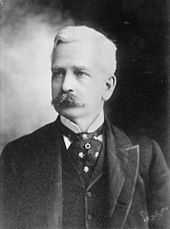The customer is always right

"The customer is always right" is a motto or slogan which exhorts service staff to give a high priority to customer satisfaction. It was popularised by pioneering and successful retailers such as Harry Gordon Selfridge, John Wanamaker and Marshall Field. They advocated that customer complaints should be treated seriously so that they should not feel cheated or deceived. This attitude was novel and influential when misrepresentation was rife and caveat emptor (let the buyer beware) was a common legal maxim.[1] Variations include "le client n'a jamais tort" (the customer is never wrong) which was the slogan of hotelier César Ritz[2] who said, "If a diner complains about a dish or the wine, immediately remove it and replace it, no questions asked".[3] A variation frequently used in Germany is "der Kunde ist König" (the customer is king).
However it was pointed out as early as 1914 that this view ignores that customers can be dishonest, have unrealistic expectations, and/or try to misuse a product in ways that void the guarantee and states "if we adopt the policy of admitting whatever claims the customer makes to be proper, and if we always settle them at face value, we shall be subjected to inevitable losses."[4] The work concluded "If the customer is made perfectly to understand what it means for him to be right, what right on his part is, then he can be depended on to be right if he is honest, and if he is dishonest, a little effort should result in catching him at it."[5] An article a year later by the same author addressed the caveat emptor aspect while raising many of the same points as the earlier piece.[6]
See also
References
- ↑ Hughston McBain (November 1944), "Are customers always right", The Rotarian: 32–33, available online
- ↑ Ralph Nevill, Charles Edward Jerningham (1908), Piccadilly to Pall Mall: manners, morals, and man, Duckworth, p. 94,
Mr. Ritz who, in the 'eighties... this maxim was "Le client n'a jamais tort," no complaint, however frivolous, ill-grounded, or absurd...
- ↑ A.E. Hotchner (July 2012), "A Legend as big as The Ritz", Vanity Fair
- ↑ Farrington, Frank (1914) "Successful Salesmanship: Is the Customer Always Right?" Mill Supplies Volume 4 number 9 pg 45-47
- ↑ Farrington, Frank (1914) "Successful Salesmanship: Is the Customer Always Right?" Mill Supplies Volume 4 number 9 pg 45-47
- ↑ Farrington, Frank (1915) "Is the Customer Always Right?" in Merck Report, Volume 24 pg 134-135
Further reading
- Benefiel, Margaret (2005). Soul at Work: Spiritual Leadership in Organizations. Church Publishing, Inc.
- Freiberg, Kevin; Freiberg, Jackie (2001). Nuts!: Southwest Airlines' crazy recipe for business and personal success. Texere. ISBN 9781587991196.
- Woods, Allan; Hebron, Lesley; Bradley, Sally (2001). Customer Service: S/NVQ Level 3. Heinemann. ISBN 9780435452278.
- Iacobucci, Dawn; Grayson, Kent; Ostrom, Amy (1994-07-15). "Customer Satisfaction Fables". Sloan Management Review 35 (4): 93–96.
- Henney, Nella Braddy (1922). "The Value of Courtesy". The Book of Business Etiquette. Garden City, N.Y.: Doubleday, Page & Co.
- Craven, Robert (2002). Customer is King - how to exceed their expectations. Virgin Books, Inc.
External links
- 30 Ways to Show Your Customers They're Always Right
- 3 Reasons Why the Customer Isn't Always Right
- Not Always Right - Funny Stories and Anecdotes
- The Customer Is Not Always Right, But They Do Have All the Answers
- The customer is (not) always right
- Top 5 reasons why “The Customer Is Always Right” is wrong